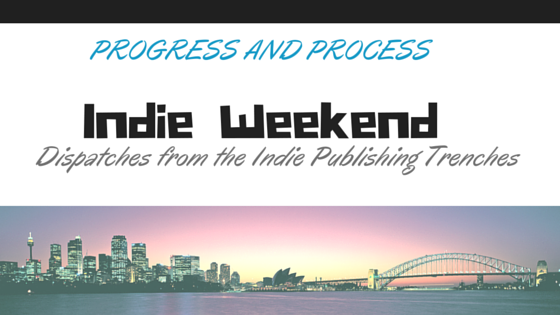 I’m usually a pretty slow writer. It can take me years, false starts, side tracks, and roundabouts before I figure out a story the way it wants to be told. For the longest time (about 17 years of my writing career), I believed that I was wasting a lot of time. In spite of the rapid release schedule for “Huntress,” that story percolated for a good year an a half (and then sat on a shelf for a few more years because there was no market for it at the time).
I’m usually a pretty slow writer. It can take me years, false starts, side tracks, and roundabouts before I figure out a story the way it wants to be told. For the longest time (about 17 years of my writing career), I believed that I was wasting a lot of time. In spite of the rapid release schedule for “Huntress,” that story percolated for a good year an a half (and then sat on a shelf for a few more years because there was no market for it at the time).
Even when I was finishing novels, learning new craft techniques, and honing my voice. I wasn’t making progress, and it hurt me. I felt like a fake, like a dabbler, like the worst kind of dilettante pretending at being a writer, even as I failed to imagine myself as anything but a writer, and I knew enough about the business and craft to give other people sound advice that helped them be better writers. I also knew that I couldn’t keep going on as I had been. Indie publishing removed a lot of roadblocks between me and getting my stories into the hands of readers, so why was I still plodding along? Some wise writing advice from the StoryWonk podcast pointed me in the right direction–I had to understand my writing process if I hoped to make writing progress.
My writing process is one where I need a certain amount of time to let the story percolate before I can continue writing or revising. It’s been a struggle, but I finally learned how to build that in to my process. Just last year (after 19 years of doing this–never say I’m not too stubborn to learn a new trick or two).
One of the greatest things about indie publishing is that you get to set your own schedule. For some writers, that means writing as fast as the stories come, without worrying that the public will get tired of you or that you’ll glut your own market. For others, that means being able to take their time crafting their stories as inspiration comes to them, or letting stories “percolate” until just the right time. And neither of these paces is wrong! They’re both the right way to do it, as long as the writer respects the process.
To respect your process, it helps if you understand your process. When was the last time you examined your work habits, your mental state, and your physical state through the process of writing a whole story? It’s worth a look to note whether or not you find yourself rehashing the same doubts, fears, and mood swings from story to story. If so, congratulations, that may be part of your process (and you’re not due to be committed). Embrace it, because your brain has a reason for it.